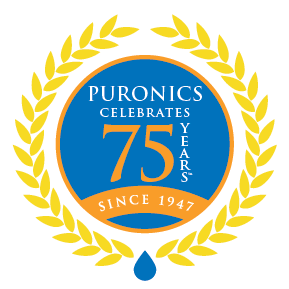Last Updated on August 26, 2021
There’s no such thing as a salt-free water softener. These water systems will help with some hard water problems, but they don’t soften water. Learn what a water softener is, what a salt-free system does and what’s right for you.
What is a Water Softener?
The Water Quality Association defines a water softener as “a device, product or equipment that reduces the presence of water hardness to less than 1 grain per gallon (gpg) expressed as calcium carbonate (CaCO3) equivalent via chemical, physical or other means.” Essentially, a water softener removes enough hardness minerals that the concentration is less than the standard unit of measurement.
A water softener works by running hard water through a bed of ion exchange resin. The resin removes the hardness minerals by exchanging them for sodium or potassium ions.
What Does a Salt-Free System Do?
The systems that are called “salt-free water softeners” don’t remove hardness minerals. In fact, they have no effect on the concentration. If you test water after treatment by one of these systems for hardness, it will be the same as before.
Sometimes referred to as “salt-free water conditioners” (which is an accurate term), what these systems do is reduce scale buildup. They do this by making the hardness minerals form microcrystals which don’t build up in pipes, appliances and fixtures. However, since the water is hard, you’ll still see water spots, need extra soap and have dry skin and hair.
Why Salt-Based?
With a salt-based water softener, you experience all the benefits of soft water, including stopping scale buildup. You’ll also save time on cleaning because the system will virtually eliminate soap scum and water spots. You’ll save money on soaps and detergents because you can use up to 50% less. Your skin will be softer and your hair will be healthier because the water won’t strip your body of natural oils.
Why Salt-Free?
The main reason salt-free systems exist is because some people don’t want to have to put salt in the backflush tank. Salt-based systems require you to check the salt level in the backflush tank and periodically add more salt. Salt-free systems typically need very little maintenance, so once it is installed, you don’t have to worry about it.
What System is Right for Me?
It really depends on why you want soft water. Both types of systems will reduce scale buildup, protecting your plumbing and appliances. If this is your main concern, then a salt-free water conditioner will help. However, if you want all the benefits of soft water, including healthier skin and hair, virtually no water spots and savings on soap, you need a salt-based water softener. Puronics makes both water softeners and salt-free water conditioners.
Read our other blog posts to learn more about water treatment and hard water, or contact your local authorized dealer to find out about your options.
© Copyright 2021 Puronics, Inc. All rights reserved.

 Puronics, Incorporated
Puronics, Incorporated




Nice presentation and clarification of the differences between the two systems.
Thank you!